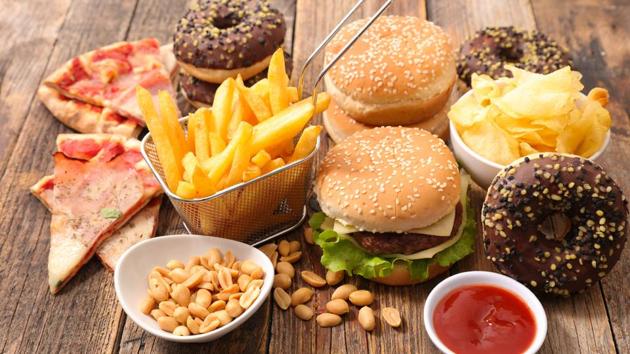Many people unknowingly follow nighttime eating habits that hurt weight loss, slowing their fat-burning progress. Eating late at night, consuming high-calorie snacks, or drinking sugary beverages before bed can spike insulin and store fat instead of burning it. Other harmful habits include mindless snacking while watching TV and skipping dinner only to overeat later. These behaviors disrupt metabolism, increase cravings, and reduce sleep quality, which further hinders weight management. By identifying and adjusting these patterns, you can restore your body’s natural fat-burning rhythm. Understanding how nighttime eating affects hormones and digestion is key to successful, sustainable weight loss.

Late-Night Snacking
Late-night snacking is one of the most common habits that sabotage weight loss. Eating high-calorie foods like chips, cookies, or ice cream before bed adds extra calories that the body does not burn overnight. This surplus often converts to fat. Mindless snacking while watching TV or scrolling on your phone amplifies the problem. Replacing snacks with herbal tea, water, or a small portion of protein-rich foods helps curb late-night hunger. By establishing a cut-off time for eating, usually 2–3 hours before sleep, you allow your body to digest food properly and support overnight fat-burning processes.
Sugary and Processed Foods
Consuming sugary foods and processed snacks at night spikes blood sugar and increases insulin production. Candies, pastries, and packaged desserts are particularly harmful when eaten late. They not only add unnecessary calories but also disrupt sleep and cravings. Instead, choose nutrient-dense evening options like Greek yogurt, nuts, or vegetables. These alternatives stabilize blood sugar and prevent energy crashes. Avoiding sugary and processed foods at night is crucial for maintaining metabolism and promoting fat-burning. This habit ensures your body does not store extra calories as fat and supports healthier eating patterns throughout the day.
:max_bytes(150000):strip_icc():format(webp)/Health-GettyImages-478743976-c653aab5d10348e2b73c929dc5332a10.jpg)
Skipping Dinner Then Overeating
Some people skip dinner and overeat late at night, thinking it reduces calorie intake. However, this behavior often backfires. Skipping meals slows metabolism and increases hunger, making late-night overeating more likely. Overeating high-calorie foods at night adds extra fat instead of burning it. Eating a balanced dinner with protein, fiber, and healthy fats prevents excessive hunger later. Proper evening meals stabilize hormones, reduce cravings, and make it easier to avoid late-night snacking. Consistency in dinner timing ensures your body maintains its natural rhythm, supporting fat-burning and long-term weight management.
Eating While Distracted
Eating while distracted, such as watching TV, using your phone, or working late, often leads to consuming more than necessary. Mindless eating prevents you from recognizing fullness cues, causing overeating. Nighttime is especially risky because digestion slows, and the body stores excess calories more efficiently as fat. Practicing mindful eating, even for a light snack or dinner, improves portion control. Sitting at a table, focusing on your meal, and chewing slowly help your body process food better. By eliminating distractions, you reduce the chances of overeating and give your metabolism the chance to function optimally overnight.
Late Alcohol Consumption
Drinking alcohol at night can also be a harmful nighttime eating habit. Alcohol contains empty calories, reduces fat-burning, and often triggers cravings for unhealthy snacks. Late-night drinking interferes with sleep, which further disrupts hormones related to appetite and metabolism. Replacing alcohol with water, herbal tea, or low-calorie beverages supports hydration and reduces calorie intake. Limiting evening alcohol not only aids weight loss but also improves sleep quality and energy levels the next day. Being mindful of liquid calories and their impact on fat-burning is essential for anyone trying to maintain a healthy weight.
Conclusion
Understanding nighttime eating habits that hurt weight loss is essential for achieving sustainable results. Late-night snacking, sugary and processed foods, skipping dinner, eating while distracted, and drinking alcohol all interfere with fat-burning and metabolism. By replacing these habits with mindful eating, balanced dinners, and healthier evening snacks, you allow your body to burn fat efficiently and maintain energy. Establishing a structured nighttime routine supports sleep, hormone balance, and digestion. With consistency, breaking these harmful habits leads to better weight management, reduced c
